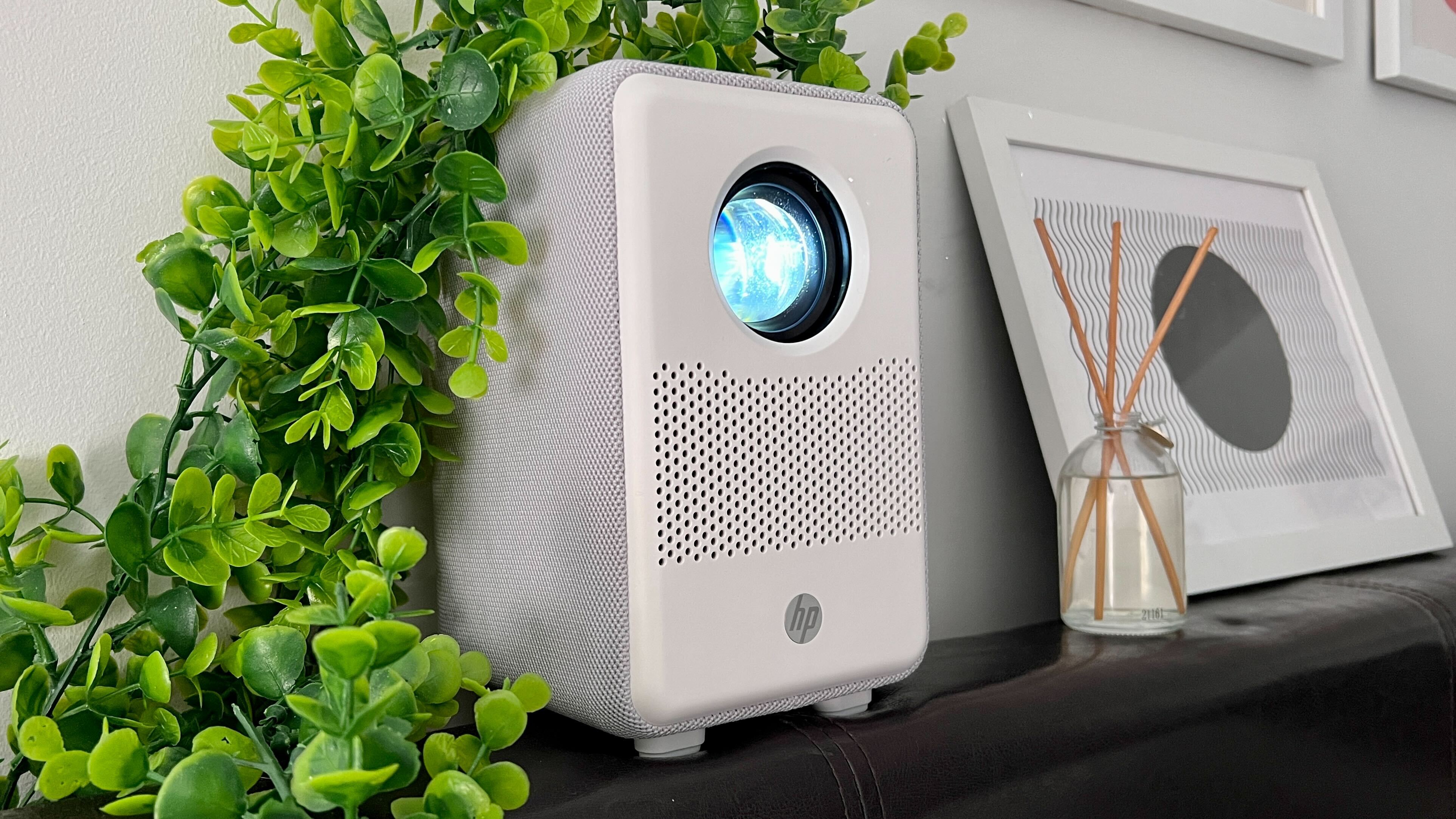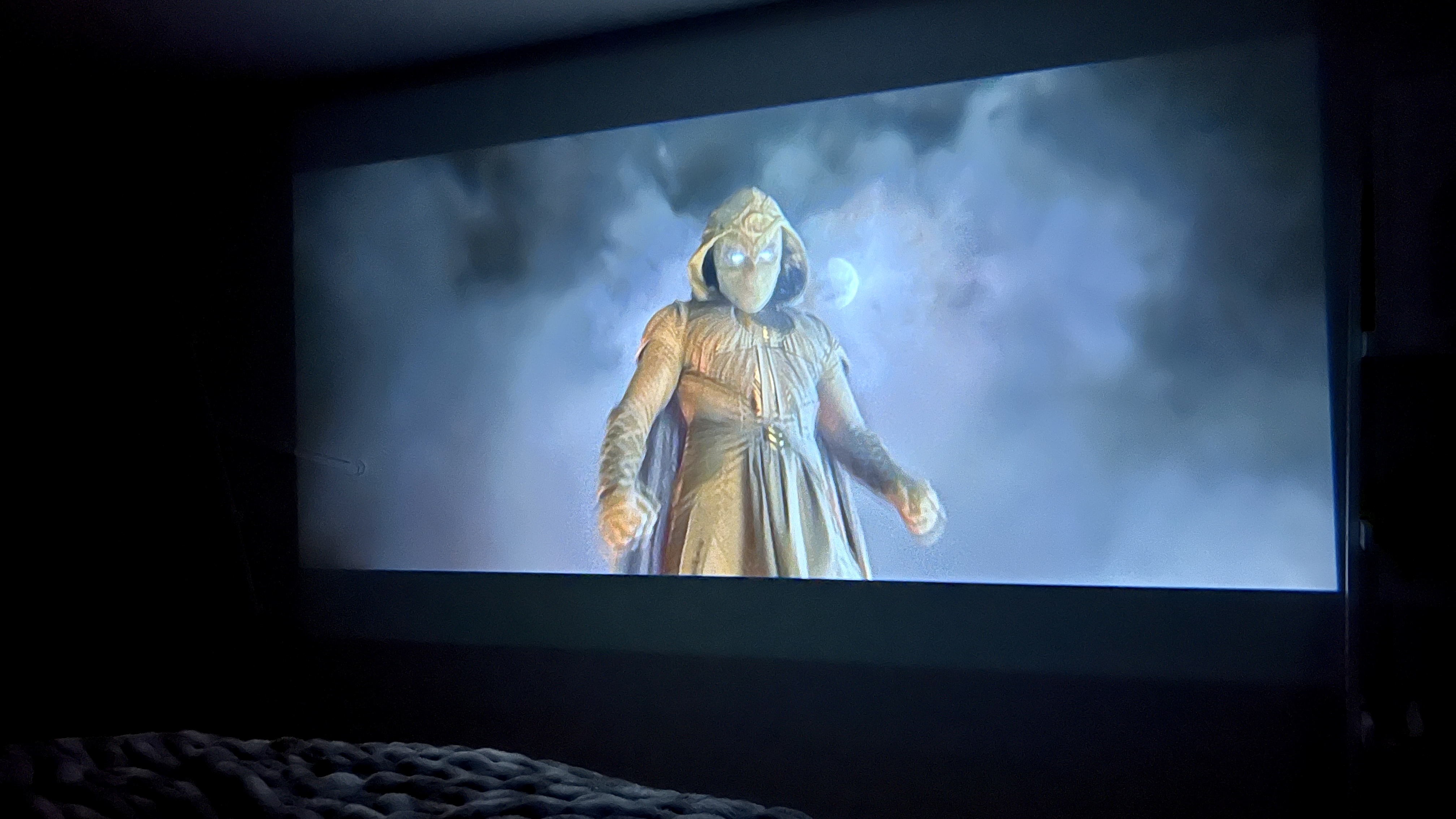This projector stopped me from buying a TV — and it costs less than $300
Here's how a budget projector replaced my need for a bedroom TV

I simply refuse to install a TV in my bedroom. I know, pretty bizarre for someone who reviews TVs for a living, but I have good reasons (or so I like to think.)
My favorite kind of TVs takes up a lot of space. It’s the best 65-inch TVs and up or bust, if you ask me. And while I can’t imagine splurging on the 97-inch LG G2 OLED TV, large screens make movie-watching at home feel magical. But, again, I’m balling on a budget and don’t want to cramp my limited wall space with a big screen. Yes, even if it’s as aesthetic-friendly as the Samsung The Frame TV 2022.
Almost exactly one year ago, I bought this $70 projector instead of a TV. At the time, the low-resolution picture quality and subpar sound didn’t bother me — I loved turning my bedroom’s blank wall into a big screen for cheap. Sometimes I used it to play music videos while getting ready to go out, or threw up a rainy cabin scene when I wanted to relax.
Sure, after covering the launch of Samsung’s The Freestyle pico projector, I thought about upgrading my setup. But if I were to spend $900 on a 1080p projector I would spend $1,299 for something like the Optoma True 4K Projector, because logic. Or maybe at that point I’d give up my wall for one of the best OLED TVs. Are you following my decision making process?
I recently had the chance to test out what I’ve since realized is the perfect compromise. The fairly new HP CC200 projector costs $279, and for that you get a 1080p Full HD picture up to 80 inches with USB and HDMI inputs, dual 3W speakers and a 3.5mm line out option. The specs don’t compare to any of the best TVs, but for the price and portability (it weighs just over 3 pounds) it’s a score.
What is budget projector performance like?

Again, I wouldn’t ditch my living room Samsung QLED TV for the HP projector like I might for LG’s new short-throw, 100-inch 4K laser projector. Not much has changed as far as my needs are concerned in the year since my first projector purchase — I still just want the option to occasionally toss on a rom-com or watch the latest episode of Moon Knight (how about Moon Knight episode 3 though?) from the comfort of my bed.
Moon Knight gave me a good sense of this projector’s picture quality. No spoilers I swear, just appreciation for the details of Oscar Issac’s inky tresses and the intricate folds of his mummy-looking linen suit. With a mere 200 lumens, I didn’t expect solid brightness but it sufficed even in evening scenes as long as my bedroom was dark. This projector isn’t built to battle sunlight, so luckily most of my Marvel and movie-watching takes place at night.
Sign up to get the BEST of Tom's Guide direct to your inbox.
Get instant access to breaking news, the hottest reviews, great deals and helpful tips.
Meanwhile the dialog sounded balanced through the built in speakers, though as was the case with my former projector, I will usually opt to pair my input device to the Sonos Move or Amazon Echo (4th Gen) via Bluetooth.
Speaking of input devices, this projector doesn’t pair to Wi-Fi or offer a smart TV interface. You can mirror the screen of a phone or computer (or in my case, iPad mini 6) with the right adapters. And hooking it up to one of the best streaming devices is an option, too. If lack of built-in apps is a dealbreaker, check out the popular $350 Anker Nebula Apollo.
The right projector for the price
For me, the HP CC200 is the best projector I’ve tested for the price. Is it the best projector overall for building the ultimate home theater? Absolutely not. If you’re creating the cinema experience in your home, you’ll want to stick to a 4K projector with HDR upscaling and at least 2,000 lumens brightness like the Anker Nebula Cosmos Max or Epson Home Cinema 3200 4K projector. Expect to spend at least $1,000, though.
But with a budget, a blank white wall and ledge above my bed this projector replaces a TV for me. And who knows? With summer around the corner, I might brush up on how to make a backyard movie theater.
Kate Kozuch is the managing editor of social and video at Tom’s Guide. She writes about smartwatches, TVs, audio devices, and some cooking appliances, too. Kate appears on Fox News to talk tech trends and runs the Tom's Guide TikTok account, which you should be following if you don't already. When she’s not filming tech videos, you can find her taking up a new sport, mastering the NYT Crossword or channeling her inner celebrity chef.

